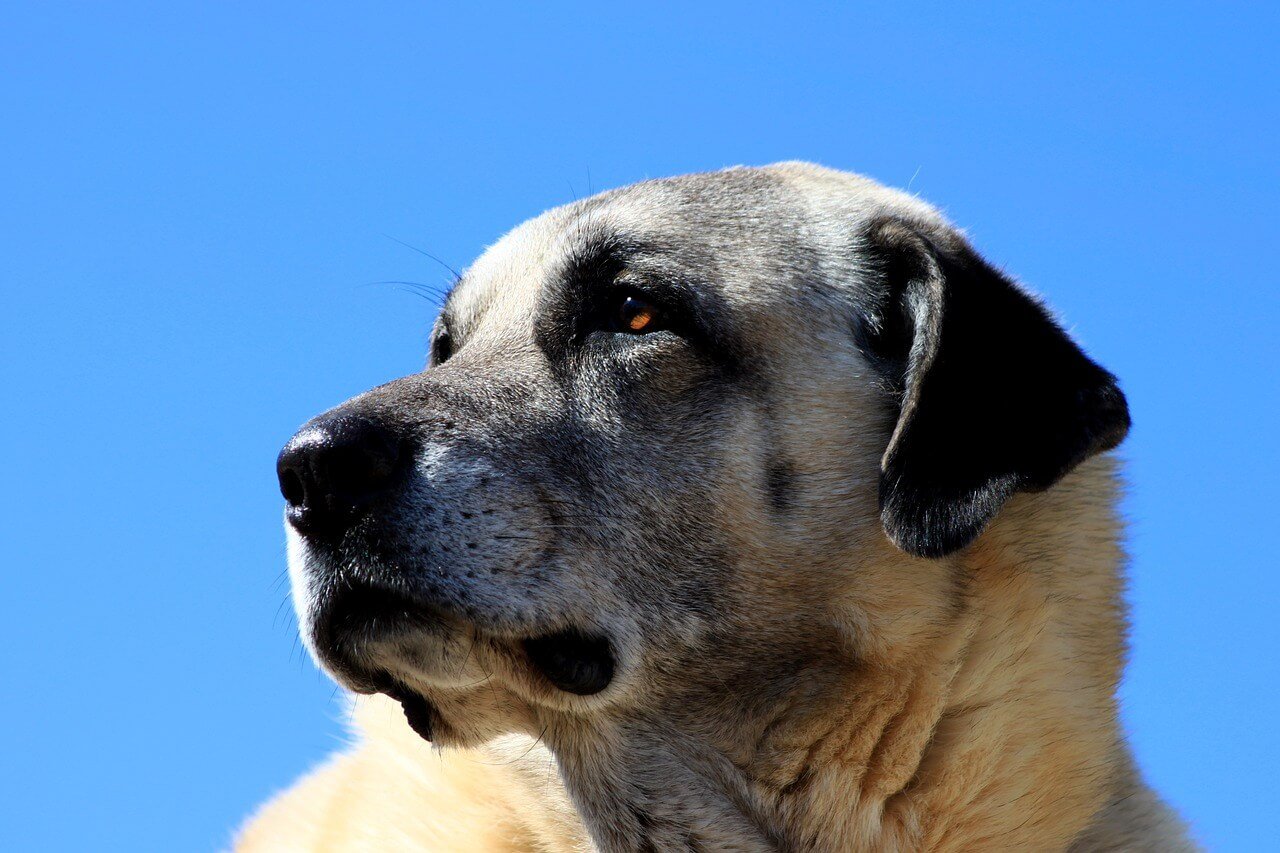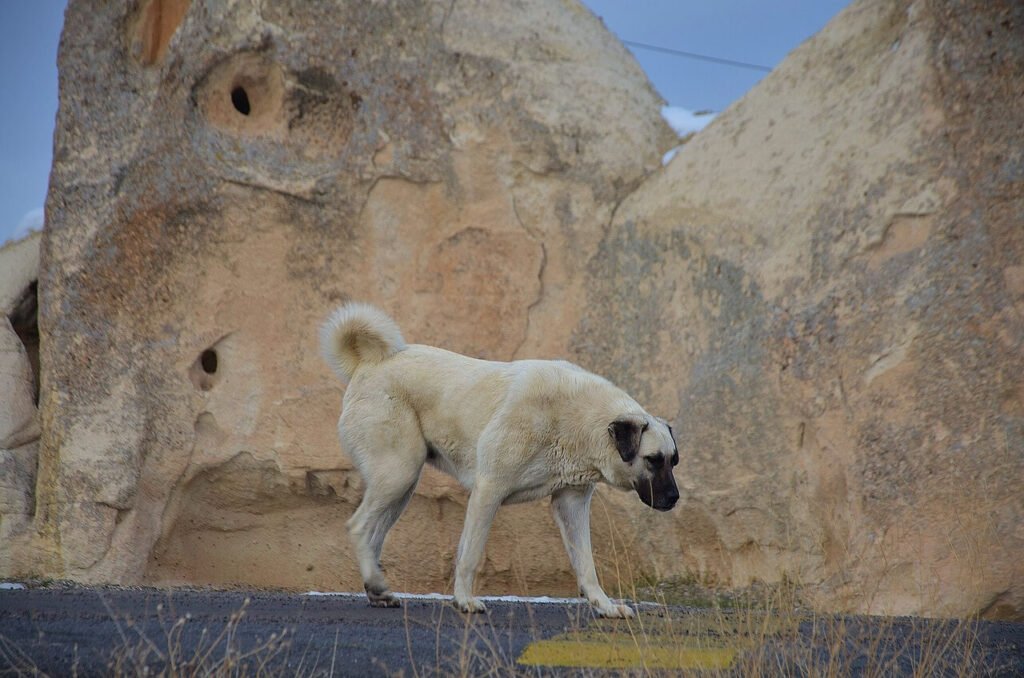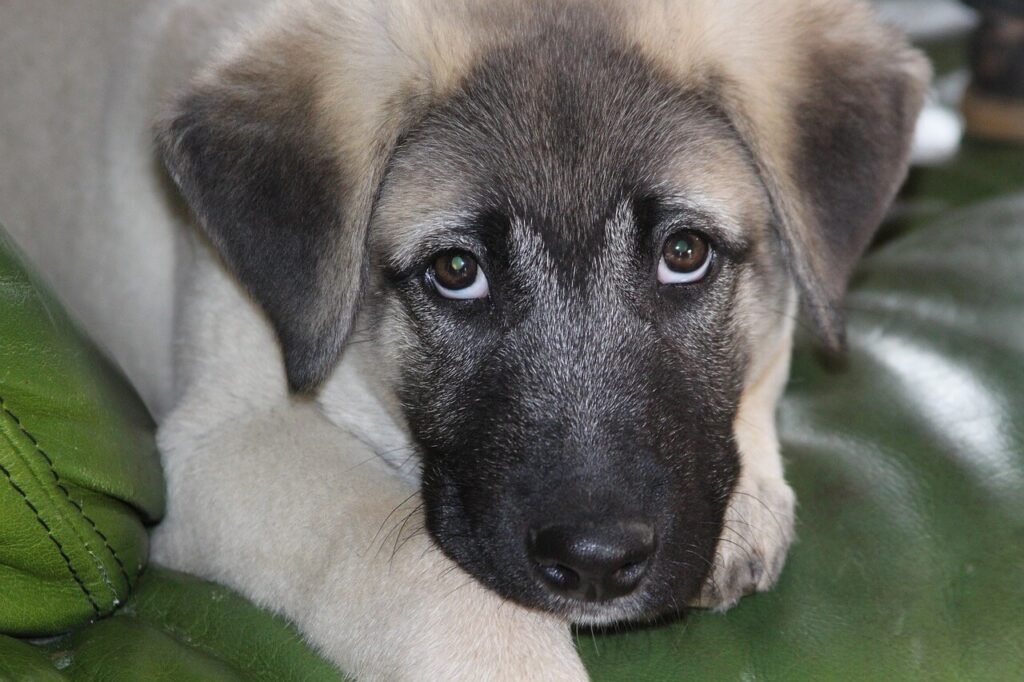Kangal Dog Price, Temperament, Life Span, and More

The Kangal Dog, a sizable and robust breed with a sturdy bone structure, is a commonly sighted canine in Turkey. They serve as both herding dogs and protective guardians of livestock, warding off potential threats. These dogs are alternatively referred to as Kangal Shepherd Dogs, Turkish Kangal Dogs, or Kurdish Kangal Dogs. Their distinct features include prominent, massive heads and elegantly curled tails. Despite their imposing size and appearance, Kangal Dogs exemplify the essence of gentle giants.
Their keen alertness makes them excellent watch or guard dogs, and they display no signs of aggression. They tend to be more defensive than aggressive. It’s important to note that Kangal Dogs are better suited for environments with large backyards or farms rather than indoor living. In this article, we will provide comprehensive information about the Kangal dog, including details on their price, temperament, lifespan, and more.
Kangal Dog Breed Overview
Kangal Dog Breed Overview
- Breed Name: Kangal Dog
- Breed Group: Working Dog
- Height: 22 to 33 inches
- Weight: 95 to 145 pounds
- Lifespan: 12 to 15 years
- Coat: Short and dense
- Color: Fawn or tan with black facial and ear coloring, along with occasional white markings on the chest, toes, and chin
- Temperament: Independent, calm, loyal, protective
- Grooming Needs: Low
- Hypoallergenic: No
- Origin: Turkey
Some Additional Details About the Kangal Dog Breed
- History: The Kangal Dog’s history is deeply rooted in Turkey, where they have been utilized for centuries as guardian dogs for livestock, particularly sheep and goats. Their lineage can be traced back for generations, making them an integral part of Turkish agricultural traditions.
- Personality: Kangal Dogs are renowned for their independent and self-assured nature. They are known for their calm demeanor, which is coupled with unwavering loyalty to their owners. These dogs are highly protective of their territory and those under their care, making them excellent watchdogs and guardians.
- Training: Kangal Dogs are intelligent and can be trained effectively, but they require consistent and firm training from an early age. Due to their independent nature, they may occasionally exhibit stubbornness, so patient and positive reinforcement-based training methods are recommended.
- Socialization: Proper socialization is crucial for Kangal Dogs to ensure they are well-adjusted and can interact with people and other animals. Early and continuous exposure to various environments, people, and situations is essential.
- Exercise Needs: As working dogs, Kangals have moderate to high exercise needs. They enjoy regular walks, outdoor activities, and room to roam. A large backyard or access to open spaces is ideal for them.
- Health: Kangal Dogs are generally robust and healthy dogs, but like all breeds, they can be prone to certain health issues. These may include hip dysplasia, entropion (an eye condition), and bloat. Regular veterinary check-ups and a well-balanced diet are essential for their overall well-being.
- Role Today: While still widely used in Turkey as livestock guardians, Kangal Dogs are gaining popularity as family pets and protectors in other parts of the world. Their unique combination of loyalty, protectiveness, and gentle nature makes them a sought-after breed for those with the space and commitment to care for them.
- Legal Considerations: It’s important to be aware of any breed-specific legislation or regulations in your area before considering the adoption of a Kangal Dog, as they may be subject to certain restrictions or requirements in some regions.
Origin

Originating from the province of Sivas, the Kangal Shepherd Dog holds a special place as the national dog of Turkey. This breed is deeply ingrained in Turkish culture and is primarily a working dog known for its remarkable protective abilities.
Turkish Kangal dogs are specifically bred to safeguard livestock and serve as guardians for security purposes. Their role is pivotal, as they protect both people and herds from potential threats posed by wild animals such as wolves, jackals, lions, and cheetahs, which are commonly found in the regions of Turkey and Africa. Consequently, these dogs enjoy immense popularity in these areas due to their unparalleled protective capabilities.
The Kurdish Kangal, also known as the Turkish Kangal dog, has earned the nickname “Anatolian Lion” due to its enduring presence on our planet for over a thousand years. Their reputation is built upon their impressive size, speed, agility, and, notably, possessing one of the strongest bites among all dog breeds.
Studies indicate that the Kangal shares a close genetic relationship with dogs in regions such as Kazakhstan, Tajikistan, Uzbekistan, and Afghanistan, reinforcing their historical significance and wide-ranging influence.
Check Out Cheap Kangal Dog Price
Appearance:
The Turkish Kangal Dog is a breed distinguished by its robust and large build, naturally honed over time as a protector of flocks against predators. Key features of their appearance include:
- Size: These dogs are notably large and possess a heavy-boned structure, reflecting their strength and resilience as guardians.
- Head: Kangal Dogs have a generously proportioned head that is moderately wide, and they sport a striking black muzzle that adds to their commanding presence.
- Ears: Their ears are pendulous, hanging down and extending in length, contributing to their unique appearance.
- Body Proportions: A well-conformed Kangal Shepherd Dog is longer in body than in height, which is a distinctive trait of this breed.
- Coat: The Kangal’s coat is short and dense, designed to provide protection against the challenging climatic conditions of Turkey and the African regions where they are commonly found.
- Tail: They feature a characteristic curved tail, which lends an elegant touch to their overall appearance.
- Coloration: Kangal Dogs typically showcase body colors ranging from fawn to tan, while their ears are adorned with black shading. Occasionally, they may display white hairs on their paws, underbelly, and chin.
- Double Coat: Their dense double coat serves as a natural shield, safeguarding them from the extremes of both Turkish winters and hot summers. Moreover, this coat plays a crucial role in preventing skin damage when subjected to bites from wild animals.
The Kangal Dog’s appearance, including their strong build and protective coat, is a testament to their role as stalwart defenders of livestock and herds in regions where they are highly regarded.
Temperament and Behavior:
The Kurdish Kangal dog is celebrated for its unique and remarkable personality, setting it apart as a breed known for its distinctive qualities:
- Good-Tempered and Loyal: Kangal Dogs are renowned for their amiable and loyal nature. They readily adapt to various environments, making them well-suited for roles as shepherd dogs and security dogs, thanks to their strong protective instincts.
- Calm and Patient: With proper training and socialization, Kangal Shepherds exhibit remarkable composure and patience, especially when interacting with children and other animals. Their protective style leans towards defense rather than aggression, making them a safe choice for family settings.
- Leadership Requirement: It’s important to note that if a Kangal dog perceives its owner as submissive or lacking in authority, they may attempt to assume the alpha role. Consequently, firm and consistent leadership is crucial when raising Turkish Kangal Shepherds.
- Alert and Territorial: These dogs possess a keen sense of alertness and a strong territorial instinct. They are unwavering in their commitment to protecting the people they love and the areas they consider their own.
- Swift and Courageous: Kangal Dogs’ swiftness and courage enhance their capabilities as protectors, enabling them to swiftly intercept potential threats and defend their human companions or livestock.
- Suitability for Experienced Owners: Kangal Dogs are best suited for experienced dog owners who can understand and manage their unique personalities effectively. They are independent thinkers, occasionally displaying a knack for outsmarting their human counterparts.
The Kangal’s temperament, characterized by loyalty, protectiveness, and intelligence, makes them a remarkable breed for those who appreciate their distinct qualities and are well-equipped to provide the necessary training and guidance.
Kangal Dog Size:
Kangal Dogs are undeniably large and belong to the extra-large category in the world of canines. Their size is comparable to that of mastiffs, and here are some specifics:
- Males: Male Kangal Dogs typically stand impressively tall, ranging from 28 to 33 inches at the shoulder and weighing in at a substantial 110 to 145 pounds.
- Females: Females of this breed are slightly smaller in comparison to the males, both in height and weight.
Given their considerable size, Kangal Dogs are not well-suited for apartment living. This giant breed thrives in open spaces, where they can stretch their legs and exhibit their natural behaviors more comfortably. Providing them with the room they need is vital for their well-being and contentment.
Kangal Dog Price:
If you’re interested in acquiring a Kangal dog, it’s important to be aware of the pricing dynamics associated with this breed:
- Price Range: The cost of a Kangal dog typically falls within the range of $1,200 to $2,500, and this range can vary based on several factors.
- Rareness: One key reason for the relatively high Turkish Kangal price is the breed’s rarity. Their unique characteristics and heritage make them sought after, and their scarcity contributes to their elevated cost.
- Reputable Breeding: To ensure the health and well-being of your Kurdish Kangal dog, it is crucial to purchase from a reputable and ethical breeder. Doing so helps mitigate potential genetic health concerns and ensures that you are getting a well-cared-for dog.
- Champion-Breed Kangals: In some cases, Kangal Shepherd Dog prices may exceed the $2,500 range, especially for dogs that come from champion bloodlines. Exceptional lineage and performance in shows or work can elevate their value.
- Factors Affecting Price: Several other factors can influence the cost of a Kangal dog, including geographical location, breeding conditions, the breeder’s reputation, and the current demand for the breed in a particular area.
When considering adding a Kangal dog to your family, it’s wise to research thoroughly, work with a reputable breeder, and be prepared for the financial investment required to bring one of these remarkable dogs into your home.
Training and Socialization of Kangal Dog Puppies:

Raising Kangal dog puppies involves early socialization and consistent training to help them become well-adjusted and obedient companions:
- Early Socialization: Kangal puppies should be introduced to various experiences, people, and other animals from a young age. This socialization helps them develop the skills needed to interact positively with humans and their furry counterparts.
- Training from the Start: Commence training as early as possible because Kangal puppies tend to learn quickly when they are in their formative stages. Early training sets the foundation for their behavior and responsiveness.
- Consistent and Firm Leadership: Kangal puppies respond well to consistent training with firm but fair leadership. They thrive when they understand their place within the family structure and what is expected of them.
- Chewing Habits: Kangal puppies have a natural inclination to chew on objects. It’s important to monitor this behavior and correct it whenever you observe unwanted chewing. Providing them with appropriate chew toys can also help redirect their focus.
- Role Models: Kangal puppies tend to mimic and learn from other dogs, so ensuring they are in the company of well-behaved canines can have a positive influence on their development.
- Quick Learners: Kangal puppies are fast learners, which makes teaching them tricks and housebreaking relatively straightforward. Consistent obedience training from an early age can prevent the development of undesirable behaviors and aggression.
In summary, early socialization and consistent, firm training are pivotal in raising Kangal dog puppies. When done correctly, these puppies grow into well-mannered and dependable companions who will be a credit to your family.
Common Health Concerns:
While Kangal Dogs are generally robust and healthy, like all breeds, they can be prone to certain health issues. It’s important for owners to be aware of these potential concerns and provide proper veterinary care when needed. Common health issues in Kangal Dogs may include:
- Hip Dysplasia: This genetic condition can affect the hip joints, leading to lameness and discomfort. Regular veterinary check-ups and monitoring can help manage this condition.
- Entropion: Entropion is an eye condition where the eyelids roll inward, causing irritation and potential eye damage. Surgical correction may be necessary in severe cases.
- Bloat (Gastric Torsion): Kangal Dogs, like many large breeds, can be prone to bloat, a condition where the stomach fills with gas and twists. This is a life-threatening emergency that requires immediate veterinary intervention.
- Obesity: Given their large size, Kangal Dogs can be susceptible to obesity. A balanced diet and regular exercise are essential to maintain a healthy weight.
- Ectropion: In contrast to entropion, this condition involves the eyelids rolling outward, which can cause eye irritation and discomfort. It may require corrective surgery.
- Skin Issues: Their double coat, while protective, can sometimes lead to skin problems, such as hot spots or allergies. Proper grooming and regular checks can help manage these issues.
- Heart Conditions: Some Kangal Dogs may be prone to certain heart conditions, so periodic cardiac evaluations are advisable.
- Joint Issues: Large dogs are susceptible to joint problems like arthritis, so it’s important to provide them with proper exercise and nutrition to support joint health.
To maintain the health and well-being of your Kangal Dog, regular veterinary check-ups, a balanced diet, proper exercise, and early intervention when health concerns arise are essential. Responsible breeding and ethical practices can also help reduce the risk of hereditary conditions in this breed.
